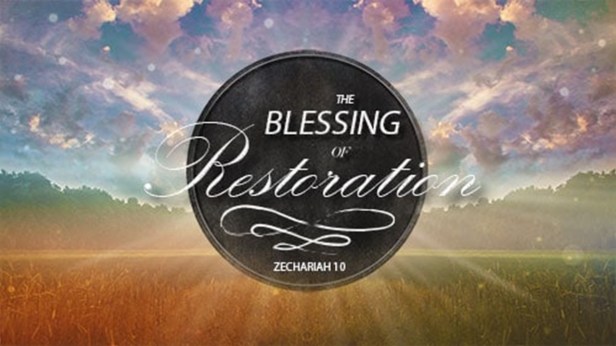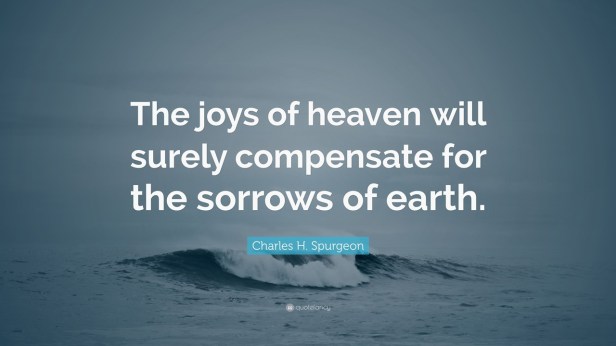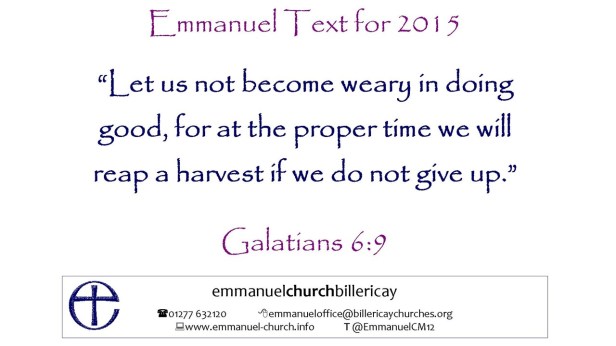Introduction
Today we conclude our Home Group series on God’s Promises In the Psalms and what a great series it’s been. We’ve had some wonderful sermons from Christine, Hugh, Pauline, James, Margaret and Rachel. Today we’re looking at Psalm 126 with the title God’s Promise Of Enduring Love. This is another of those psalms of ascent which Rachel spoke about a couple of weeks ago. These psalms are grouped in threes: a psalm of trouble, a psalm of trust and a psalm of triumph. This is the first of three, so it is a psalm of trouble!
Psalm 126 looks back to when the captives returned to Jerusalem following their long exile in Babylon. They had suffered so much, and now they suddenly found themselves back in their homeland, back in Jerusalem, back in the beloved city of God. It was a reminder to them of God’s promise of enduring love.

a. Nobody knows the trouble I’ve seen (Nobody knows my sorrow – Zazu). We all go through hard times, and sometimes, when you are in the thick of sorrow and sadness, it feels as though it will never end. When you wake up each morning with tears, and you go to bed each evening with tears, it’s difficult to see your way forward. You begin to lose hope. You begin to wonder: “Is this all that God has for me? Will I ever be happy again?”
But when you are going through a time of deep sorrow, Psalm 126 is strong medicine for your soul. It carries a powerful message of hope. It tells you that times of trouble and sorrow do not last. It tells you that God will turn your sorrow to joy and your tears to laughter. It even tells you what you should do while you are waiting.
This is a psalm that we need during times of crisis and especially as we begin to come out of the COVID pandemic – in the UK at least. If you are going through a challenging time, I trust this psalm will speak to your heart. Whatever you’re going through, it will get better. God will turn your tears to joy. I know it seems hard to believe, but it was hard to believe for the Jews returning to Jerusalem, too.
Psalm 126 has two sections. The first one encourages us to remember how God has helped us in the past and the second section encourages us to trust God to do it again!

- Remember God’s Enduring Love vs1-3.
Look at verses 1-3: “When the Lord brought back the captives to Zion, we were like men who dreamed. Our mouths were filled with laughter, our tongues with songs of joy. Then it was said among the nations, ‘The Lord has done great things for them.’ The Lord has done great things for us, and we are filled with joy.” Don’t just think about it, don’t just reflect on it, don’t just remember – marvel at what God has already done,

1a. I must be dreaming! When God delivers you, it can feel like you’re in a dream. That’s what we see in verse 1: “When the Lord brought back the captives to Zion, we were like men who dreamed.”
The year was 538 B.C. The Jews had been exiled to Babylon seventy years earlier. The people had settled down. They had established homes in the new land. Some of them had been born in exile. It was all they knew. And then suddenly, Cyrus, the new king, made a proclamation allowing all the Jews to go home (Ezra 1:1-4).
The Jews had experienced seventy long years in captivity, and then in a moment, God turns things around. Just like that! They were in shock. They couldn’t believe it. It was too good to be true. It was impossible. It couldn’t have happened, and yet it did! They were now back in Jerusalem, back in the holy city, back in Zion, the place where God dwells with his people, and it all felt like a dream.
You can see why this psalm became one of the psalms of ascent. The pilgrims making their way to Jerusalem each year for the feasts would have been acutely aware that this was the same route the captives had taken when they returned. And they would have marvelled at God’s graciousness in returning the captives to Zion.

1b. A season of laughter and joy. Look at verse 2: “Our mouths were filled with laughter, our tongues with songs of joy.” Before we can understand their laughter and joy, we must first understand the captives experiences of great sorrow and mourning in exile.
In fact, some of the most heart-breaking passages in the Bible have to do with the exile of the Jews to Babylon – passages in the book of Lamentations or like these heart-breaking words in Psalm 137:1-4 made famous by Boney M in 1978. An upbeat disco song for such a downbeat situation: “By the rivers of Babylon we sat and wept when we remembered Zion. There on the poplars we hung our harps, for there our captors asked us for songs, our tormentors demanded songs of joy; they said, ‘Sing us one of the songs of Zion!’ How can we sing the songs of the Lord while in a foreign land?”
Their tormentors demanded songs of joy, but they just sat by the waters of Babylon and wept. How can you sing when you are held captive in a foreign land? But now by an amazing work of God they were suddenly back in Zion. And their mouths were filled with laughter and songs of joy.
Joy is mentioned four times in this psalm. Songs of joy are mentioned twice (see verse 6). Joy is all over this psalm, which is ironic when you consider it is one of the psalms of trouble. When you are drowning in tears and sorrow, you sometimes wonder if you will ever laugh again. Psalm 126 says you will! In God’s time your sorrow will be lifted, and God will fill your mouth with laughter and songs of joy.

1c. To God be the glory. And when God does a work like this in your life, it brings glory to God and joy for us. That’s what we see in verses 2-3: “Then it was said among the nations, ‘The Lord has done great things for them.’ The Lord has done great things for us, and we are filled with joy.”
“It was said among the nations.” What God did for Israel was so amazing that even the surrounding nations had to sit up and take notice of what God had done and give God the glory. And then notice that after the nations give glory to God, so also does Israel. “The Lord has done great things for us, and we are filled with joy.”
These verses remind us of our responsibility to tell others what God has done for us. Are you your friends and neighbours aware of what God has done for you? Do you share testimonies of God’s goodness with those around you on a regular basis? Will you take the opportunity to invite one of them to Alpha in September?
Notice that verse 3 is the only verse in this psalm that is written in the present tense. Verses 1-2 are in the past tense. Verses 4-6 are in the future. Verse 3 expresses joy in the present based on remembrance of the past and hope for the future. When God does a work of deliverance in your life, it brings glory to God and joy for us.

- Trust God To Do It Again! vs4-6
Look at verses 4-6: “Restore our fortunes, O Lord, like streams in the Negev. Those who sow in tears will reap with songs of joy. He who goes out weeping, carrying seed to sow, will return with songs of joy, carrying sheaves with him.”
The captives were back in Jerusalem, but there was still much work to be done. They needed to rebuild the temple and rebuild the walls. They faced discouragement from within and opposition from without. God had worked a great deliverance for them in the past. Now they needed to trust him to do it again. Lamentations 3:22-23 says: “Because of the Lord’s great love we are not consumed, for his compassions never fail. They are new every morning; great is your faithfulness.”
You may face fresh troubles each day, but God has fresh mercies for you each day to face them. God has done great things for you in the past. Now you need to trust him to do it again.

2a. The blessing of restoration. This second part of the psalm teaches us to do three specific things when we find ourselves in times of trouble. First of all, pray for God’s full restoration and blessing. Look at verse 4: “Restore our fortunes, O Lord, like streams in the Negev.”
That word “restore” is the same word that is translated “brought back” in verse one. And this is the first of two images that the psalmist uses to speak of how God works in our lives.
The first way is when God works suddenly and unexpectedly. That’s what this first image of “streams in the Negev” means. The Negev was the southern part of Judah. This was a normally dry and arid land. But in the winter and spring, rains could suddenly send waters rushing through the desert. Grass and flowers would spring forth almost overnight. This first image speaks of a sudden outpouring of God’s blessing.
Do you ever feel like your life is a desert? Spiritually dry and parched? Then you need to pray for God to restore you. God says in Joel 2:25: “I will repay you for the years the locusts have eaten.” Pray for God’s full restoration and blessing. Ask God to pour out his Spirit in your life like streams in the Negev.
We need to pray this not only for ourselves but for our church, our community and our nation. This is a prayer for revival. The return from captivity for Israel was something only God could do. And in the same way revival is something only God can do. We need to pray for God to open the floodgates of heaven and to pour out his blessing upon us.

2b. For the joys and for the sorrows. We have this beautiful promise from God in verse 5: “Those who sow in tears will reap with songs of joy.” Know that God will turn your sorrow into joy.
We now turn to the second image we have in this section of the psalm of sowing tears. The first image points to a work that is all of God – sudden and undeserved blessing. The second image points to God working through your efforts – working and waiting. It’s the difference between God’s miracles and God’s providence. They are both examples of God working but in different ways.
We see this in life all the time. For example, if you are ill, you pray for healing, but you should also go to the doctor and take the appropriate medications. There’s an old saying. Pray as though it all depended on God but work as though it all depended on you. Perhaps the better way to put it is this: work and pray as though it all depended on God working through you.
We long for the sudden deliverance, and we rejoice when it comes, but God’s normal way of working is much slower. The image of sudden streams in the desert now turns to the image of God’s slow but certain work in our lives of sowing and reaping.
When the people of Israel were carried off to Babylon, they sowed many tears. For seventy years they endured exile in a foreign land. But those who sow in tears will reap with songs of joy. And so, God brought them back. Isaiah prophesied it.
He proclaimed in Isaiah 51:11: “The ransomed of the Lord will return. They will enter Zion with singing; everlasting joy will crown their heads. Gladness and joy will overtake them, and sorrow and sighing will flee away.” Are you going through a time of sorrow? Are you sowing many tears? Know that God will turn your sorrow into joy. Psalm 30:5 says: “Weeping may remain for a night but rejoicing comes in the morning.” There has never been a sunset yet that was not followed by a sunrise! “Those who sow in tears will reap with songs of joy.”

2c. Commit yourself to the Lord. What do you do in times of trouble? 1) Pray for God’s full restoration and blessing. 2) Know that God will turn your sorrow into joy. And then 3) Commit yourself to the Lord and continue to do good.
Look at verse 6: “He who goes out weeping, carrying seed to sow, will return with songs of joy, carrying sheaves with him.” This verse expands on the image of verse 5 and focuses on the sower going forth to work and eventually returning with the harvest in his hands. It reminds us that even in times of sorrow, there is work to be done, and that good work will bear good fruit in our lives.
Galatians 6:9 gives us this word of encouragement: “Let us not become weary in doing good, for at the proper time we will reap a harvest if we do not give up.” Text for 2015

We read these beautiful words in Revelation 21:4: “He will wipe every tear from their eyes. There will be no more death or mourning or crying or pain, for the old order of things has passed away.”

Times of sorrow are hard. Sowing in tears is difficult. But nothing is wasted in God’s economy. You can trust God with your tears.
As Charles Spurgeon once said: “God is too good to be unkind and He is too wise to be mistaken. And when we cannot trace His hand, we must trust His heart.”
What do you do when you are walking through a time of sorrow? Remember what God has done in the past. And then trust God to do it again. Pray for God’s full restoration and blessing. Know that God will turn your sorrow into joy. Commit yourself to the Lord and trust your life into His hands..

Conclusion
As always, we look to Jesus for the ultimate fulfilment of this psalm. Hebrews 12:2 tells us: “Let us fix our eyes on Jesus … who for the joy set before him endured the cross, scorning its shame.” Jesus knows the trouble and sorrow we face in this life. He shed many tears of his own during his life on earth. Jesus went to the cross weeping, carrying seed to sow, and he returned from the dead with resurrection songs of joy, carrying sheaves of believers with him. If you are a believer this morning, you are part of his glorious harvest.
Psalm 126 is a psalm of trouble, but it’s a psalm of trouble with a twist. It’s a psalm that offers you hope when you are in the midst of trouble and tears. It tells us that times of trouble and sorrow do not last. God will turn your sorrow to joy and your tears to laughter. Weeping may endure for the night, but joy comes in the morning. And one day we will leave all the sorrows of this world behind for the eternal joys that await us in heaven.
There is a time for sowing and a time for reaping. Perhaps you are in a time of sowing right now. Take comfort. Your time of reaping will come. The harvest awaits. Your tears will turn to joy. This is God’s promise to you. His promise of enduring love.
This is a copy of a talk I gave at Emmanuel, Billericay on Sunday 25 July 2021. The Bible Reading was Psalm 126:1-6 and concluded our sermon series of a selection of God’s promises from the Psalms.
You might be interested in this article Lessons from the Farmer about Faith

